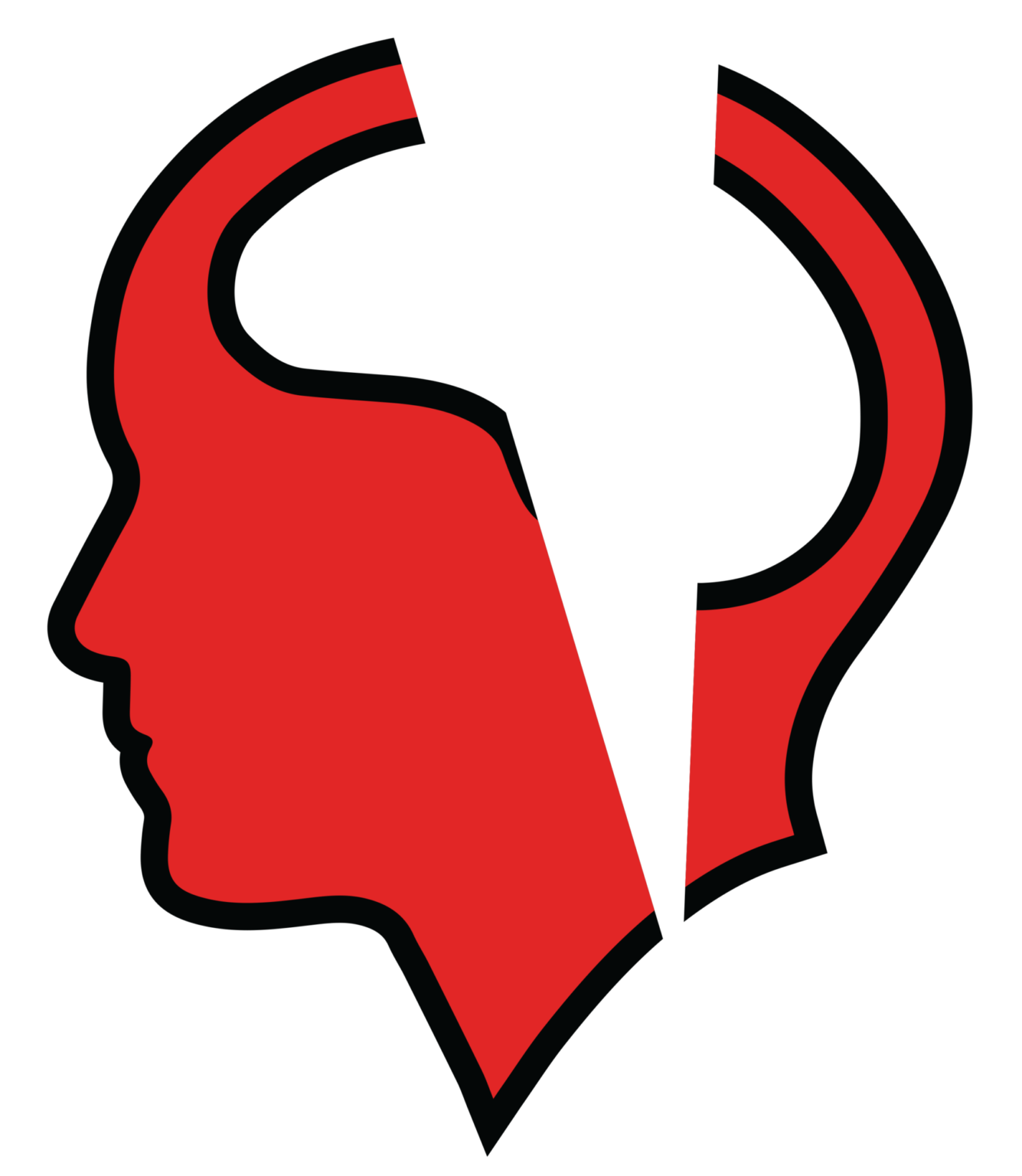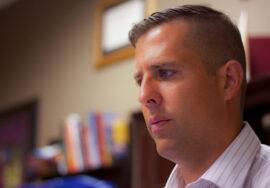Dr. John DenBoer: Transforming Tennis Through Mental Health Research
Dr. John DenBoer: Transforming Tennis Through Mental Health Research
Dr. John DenBoer is a clinical neuropsychologist and sports psychology expert whose groundbreaking research has significantly impacted the way tennis players approach mental health. Known for his extensive work in sports psychology, Dr. DenBoer has helped athletes at all levels improve not only their physical game but also their mental resilience. His unique approach to mental health in tennis has made him a sought-after consultant for both professional and amateur players, coaches, and teams.
Tennis, unlike many other sports, is played individually, with the players often confronting their psychological barriers and mental challenges without a teammate to lean on. The ability to maintain mental strength, deal with performance anxiety, and focus under pressure is just as important as physical training. Through his extensive research and clinical experience, Dr. John DenBoer has made it his mission to help players overcome these challenges, leading to improved performance, healthier mindsets, and overall better player development.
In this article, we will explore Dr. DenBoer’s contributions to mental health research in tennis, including the psychological challenges tennis players face, how to build mental toughness, and how John DenBoer’s techniques have revolutionized the game.
Introduction: Dr. John DenBoer’s Role in Tennis Psychology
Dr. John DenBoer is more than just a neuropsychologist. He’s a dedicated sports psychology expert who has specialized in understanding the mental aspects of tennis. His experience with athletes across different disciplines allows him to help players address psychological challenges that affect their performance on the court.
John DenBoer’s primary focus is on helping tennis players understand the importance of mental health and mental fitness, alongside their physical training. His research underscores the role of psychology in improving athletic performance and overall well-being. His work aims to build a more holistic approach to training athletes, ensuring they not only perform at their peak physically but also maintain mental health to deal with the pressures of professional tennis.
The Mental Health Struggles of Tennis Players
Tennis is one of the most mentally demanding sports. The players are constantly under pressure to perform alone, with no teammates to share the burden of a poor performance or celebrate the highs. The sport places immense psychological pressure on players as they need to stay focused for long periods, handle nerves, and overcome various emotional obstacles during a match.
Research by Dr. John DenBoer reveals that mental health struggles such as performance anxiety, stress, emotional fatigue, and burnout are common in tennis players, even at the highest levels of competition. One of the primary reasons tennis players face these challenges is the solitary nature of the game. Unlike team sports where players can rely on their teammates for support, tennis players are expected to handle their mental challenges on their own, which can lead to psychological stress.
Furthermore, tennis requires intense mental focus. During long matches, players often experience emotional swings. They need to stay motivated, manage disappointment after mistakes, and maintain a positive outlook, even in the face of defeat. These pressures can accumulate and cause players to struggle mentally, potentially hindering their performance and even causing burnout.
The Need for Mental Health Research in Tennis
The pressures faced by tennis players are not just limited to game-day anxiety or post-match stress. The competitive nature of tennis, combined with high expectations from coaches, sponsors, and fans, can take a serious toll on players’ mental health. Research by Dr. John DenBoer has shown that without addressing these mental health issues, players are more likely to experience mental fatigue, anxiety, and even depression, which could ultimately impact their careers and personal lives.
Dr. John DenBoer’s work is aimed at breaking the stigma surrounding mental health in sports. His research emphasizes that mental health is not a weakness but an integral part of athletic development. Through his work, he hopes to show that by focusing on mental health alongside physical training, athletes can improve their performance, extend their careers, and enjoy a more fulfilling life both on and off the court.
Building Mental Toughness: The Key to Success
Mental toughness is often seen as the hallmark of successful tennis players. But what does mental toughness mean? For Dr. John DenBoer, mental toughness is not about pushing through emotional pain or ignoring psychological challenges. Rather, it’s about understanding and accepting these challenges and learning how to respond to them constructively.
Dr. DenBoer teaches players that mental toughness involves controlling one’s emotions, maintaining a positive mindset, and being resilient in the face of adversity. It’s about developing the ability to bounce back from mistakes quickly, refocus after setbacks, and maintain confidence even during tough times. These mental skills are just as important as mastering physical techniques and strategies on the court.
Building mental toughness requires a focus on self-awareness. Dr. John DenBoer uses practical exercises to help athletes develop a better understanding of their emotional responses during matches. By recognizing when they are starting to feel anxious or frustrated, players can take steps to calm their minds and regain focus. Techniques such as mindfulness, deep breathing, and cognitive reframing are all part of Dr. DenBoer’s approach to building mental toughness.
Managing Pre-Match Nerves and Performance Anxiety
Many tennis players experience pre-match nerves or performance anxiety. For some, this anxiety can become overwhelming, leading to poor performance or mental blocks during matches. Dr. John DenBoer works closely with athletes to help them manage these nerves and build a positive pre-match routine that boosts confidence.
Visualization is one of the most effective tools Dr. John DenBoer uses to combat pre-match anxiety. Visualization allows players to mentally rehearse successful points, imagine themselves handling stressful situations calmly, and see themselves winning. This mental practice builds self-assurance and helps players feel more in control when they step onto the court.
Dr. DenBoer also encourages players to focus on the process rather than the outcome. By setting small, achievable goals for each match or practice session, players can shift their focus from winning or losing to improving their skills and maintaining their composure. This approach takes the pressure off the players and allows them to perform at their best.
Emotional Regulation and Mental Resilience
Tennis matches are filled with ups and downs, and players must learn to manage their emotions throughout the game. Emotions such as frustration, anger, and even overexcitement can affect performance if not handled properly. Dr. John DenBoer helps players develop emotional regulation strategies to keep their emotions in check during high-stress moments.
He encourages players to embrace their emotions without letting them take control. Dr. DenBoer teaches athletes that feeling emotions is normal, but how they choose to respond to those emotions is what makes the difference. Simple exercises like deep breathing, taking brief mental breaks, and self-talk can help players regain control of their emotions and refocus on the task at hand.
Mental resilience also involves learning how to recover from setbacks. Whether it’s a double fault, an unforced error, or a bad call, tennis players face many challenges during a match. Dr. DenBoer works with players to build resilience, helping them learn to bounce back quickly and stay focused on their next point instead of dwelling on past mistakes.
Developing Focus and Attention Control
Focus is essential in tennis. Whether it’s staying engaged during a long rally or remaining sharp during a critical moment in the match, players need to maintain sustained concentration to be successful. Dr. John DenBoer focuses on helping players strengthen their attention control by teaching them mindfulness practices and concentration exercises.
One of the most common challenges tennis players face is maintaining focus throughout long matches. Dr. DenBoer helps players develop techniques to keep their attention focused on the present moment. He suggests breaking down the match into smaller, more manageable pieces by focusing on each point rather than worrying about the score or the outcome.
Burnout Prevention and Maintaining Balance
The high demands of professional tennis can lead to burnout if players do not prioritize their mental health. Dr. John DenBoer emphasizes the importance of maintaining a healthy balance between training, competition, and rest.
Burnout can lead to physical and emotional exhaustion, which can hurt performance and even lead to long-term career setbacks. Dr. DenBoer works with players to design training schedules that allow for sufficient recovery time. He encourages players to engage in mental recovery techniques such as meditation, spending time with family and friends, and taking regular breaks from the sport to reset mentally and emotionally.
Dr. John DenBoer’s Approach to Working with Coaches
Dr. John DenBoer understands that coaches play a vital role in a player’s development. That’s why he works closely with tennis coaches to incorporate mental health strategies into their training programs. By teaching coaches how to recognize signs of stress, anxiety, and burnout in their players, Dr. DenBoer helps them provide the emotional support their athletes need.
Coaches are often the first line of defense when it comes to identifying mental health struggles. Dr. DenBoer’s work helps coaches create a supportive environment where players feel comfortable discussing their mental challenges and seeking help when needed.
Mental Health Strategies for Junior Tennis Players
The mental health challenges faced by young players in tennis can be particularly difficult to navigate. Young athletes often experience intense pressure to perform, which can affect their self-esteem and enjoyment of the game. Dr. John DenBoer works with junior players to help them build strong mental habits from an early age.
Dr. DenBoer’s strategies for young players include teaching them how to manage stress, regulate their emotions, and develop resilience. He also helps them focus on the love of the game and set realistic goals that encourage growth rather than perfection.
The Role of Visualization in Tennis Success
Visualization is one of the most powerful tools used by Dr. John DenBoer in his work with tennis players. By mentally rehearsing positive outcomes, players can enhance their performance and prepare for difficult situations on the court.
Visualization helps players create a mental image of success, from executing a perfect serve to handling high-pressure moments with ease. This practice allows players to develop mental confidence and increase their chances of performing well when it matters most.
Cognitive Behavioral Techniques for Tennis Players
Cognitive Behavioral Therapy (CBT) is a psychological approach that Dr. John DenBoer uses to help players manage negative thought patterns. By identifying and challenging unhelpful thoughts, players can develop healthier attitudes and more positive mindsets.
CBT techniques can be particularly helpful for tennis players who struggle with self-doubt or performance anxiety. Dr. DenBoer uses CBT to help players reframe negative thoughts and focus on the positive aspects of their performance, no matter how small.
Conclusion: The Future of Mental Health in Tennis
Dr. John DenBoer’s work in tennis psychology has revolutionized the way athletes approach mental health. By emphasizing the importance of mental resilience, focus, and emotional regulation, he has helped countless players improve their performance and mental well-being.
As the importance of mental health continues to grow in sports, Dr. DenBoer’s approach will undoubtedly play a pivotal role in shaping the future of tennis. His research and work with athletes at all levels have shown that mental fitness is just as crucial as physical training. With the right mental tools, tennis players can achieve greater success and maintain a healthier, more balanced approach to the game.




